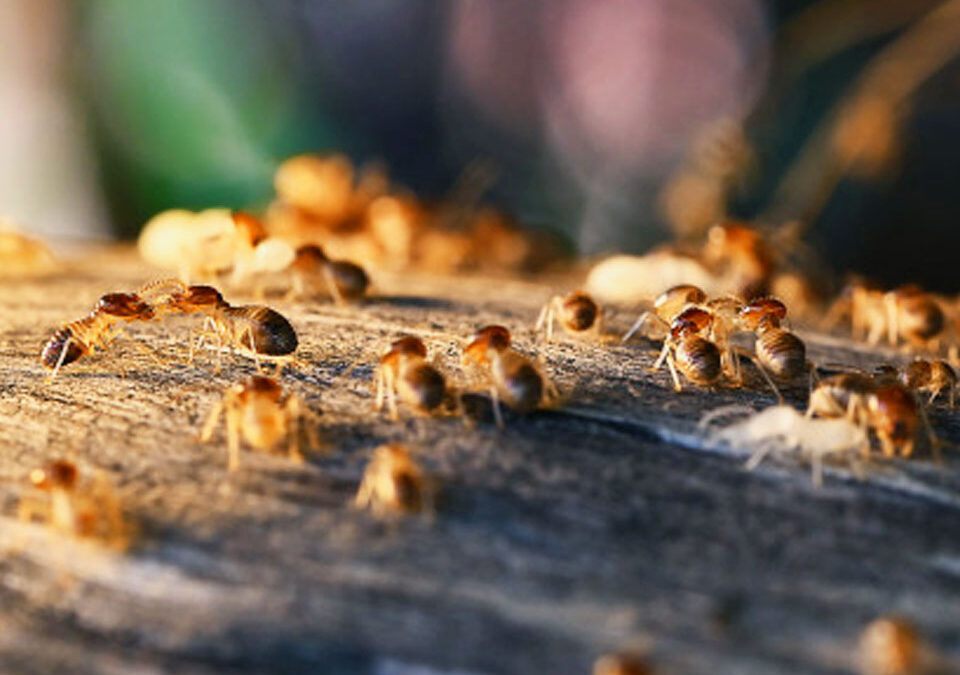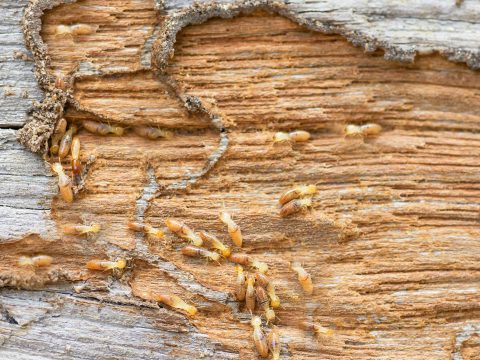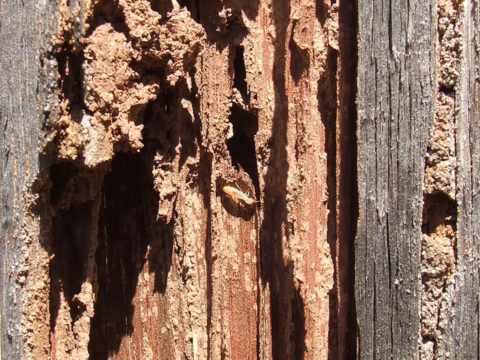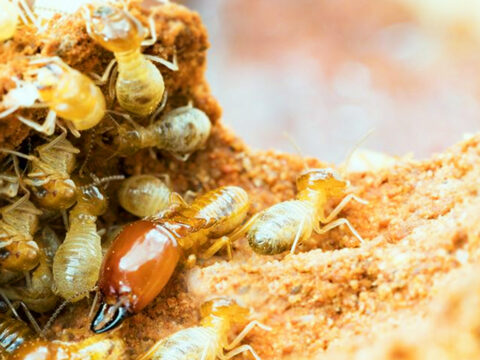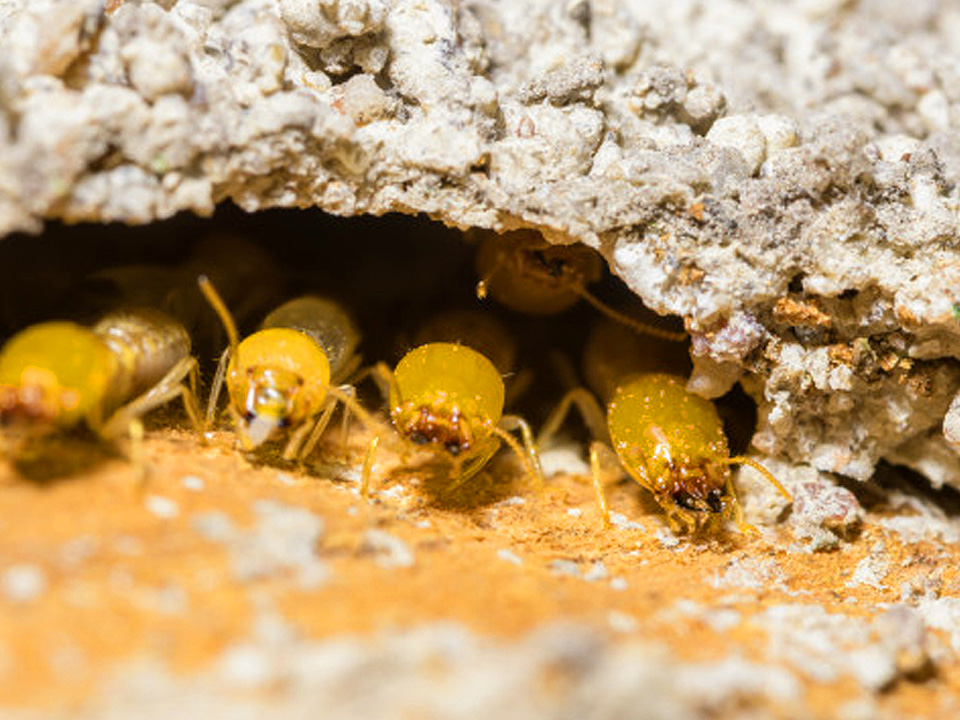
Can Termites In Your House Make You Sick?
April 21, 2021
Will Mulch Around Your House Attract Termites?
June 16, 2021If you feel like you’re hearing low-level sounds in your walls, especially at night, you are not the only one! Many homeowners ask this question of whether they can actually hear termites eating their house. So to make it clear, yes, termites can be heard in the walls.
Keep on reading as this article will help you understand more about termite noises and what kind of sounds a termite makes.
Is It Possible To Hear Termites And Can They Be Loud In Walls?
Typically, the sounds generated by such small insects like termites are faint and thus, rarely heard by humans. Although it’s technically possible to hear these sounds, to properly hear these pests at work in your walls you would need a stethoscope or specialized equipment.
If there is an infestation, there will be the noise of loud, ravenous eating through your walls. Obviously, the larger the termite infestation, the louder it gets. So, as it is not possible to hear a single termite making noise, if you listen carefully, you will be able to distinguish sounds from a large enough termite colony infesting wooden structures in your house.
In addition, when termites are disturbed or threatened, they communicate by banging their heads against their tunnels’ walls, which creates a specific sound that is louder and therefore can be heard more easily by humans.
Do Termites Only Make Noise At Night?
Termites work and eat all the time and they never sleep, thus they make noises continuously, no matter if it’s a day or night. However, during the night, when the house is quiet, it’s easiest to detect sounds. Termite noise is then more noticeable and can be picked up by fine ears.
What Do Termites Sound Like In Your Walls?
Termites are considered to be rather noisy creatures even though they may be barely audible to humans. These pests produce sounds as they persist in their movements around the wood, and as they chew and eat.
There are different types of sounds they can emit. Here are some of the most common sounds you may hear in the walls:
HEAD-BANGING –
The loudest sound and the strongest vibration that termites can produce comes from head-banging, which is a fast-paced, dry rattling sound.
When these pests sense a food source or need to communicate possible danger to other members of their colony, you can clearly hear soldier termites banging their heads and jaws or shaking their bodies against the sides of their tunnels in wood.
Head-banging is supposed to alert others when the colony has been disturbed. This activity creates vibrations that spread throughout the nest and it’s like beating a drum to evacuate when the colony is under attack. As termites are deaf, they are only able to feel the vibrations through their bodies.
BUZZING –
As opposed to the very irregular and occasional noises from other pests that might infest your home, termite sounds will be continuous, more like buzzing or humming.
CHEWING –
Termites love to chew and they do it non-stop. But the amplitude of the chewing sounds in most structures is usually much more reduced than that of the head-banging sounds. When worker termites are tunneling in a wooden structure near the surface, very soft chewing or crunching sounds may be heard.
CLICKING –
Whenever these insects are eating through wood, you can perceive a distinct clicking sound coming from your wall cavity. Worker termites will also make rustling and clicking sounds with their mouths as they tunnel through the wood.
TAPPING –
In addition, tapping noise in the walls could be attributed to the presence of termites, but also other pests. You may hear faint tapping or rattling that’s coming from inside your walls, which is a result of vibrations from the head-banging.
SWARMING –
Every year in spring, termites will also make sounds when they swarm. The noise can be perceived as a light buzzing made by the insects’ wings as they fly.
There is also another reason why you’re hearing sounds, and this is due to the fact that if termites consume a lot of wood in your walls or floors, it creates empty spaces in these structures.
These spaces sound hollow when you knock on them. If knocked upon what should otherwise be a solid piece of wood and all you hear is a clearly hollow, dull sound, it’s a sign that termites have already caused extensive damage within.
Besides, as these pests keep chewing on your hardwood floor that as a result becomes weaker and weaker over time, you will notice that your floor is creaking loudly in some places.
On A Final Note,
Since their noises are very quiet, listening for termites is not the best approach when trying to find out if there is an infestation in your walls. Instead, look for other signs that are easier to identify, such as droppings.
However, if you’ve noticed suspicious damage to your wooden structures or are convinced that these pests are munching away on your house, it’s important to act quickly so they don’t cause further damage. A termite inspection is recommended, so contact Chem Free Exterminating in Orange County, CA, as soon as possible and our team of experts will be happy to assist!

